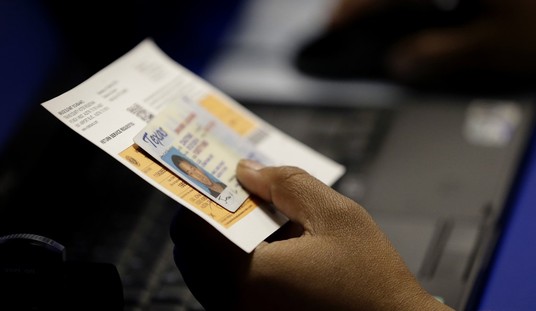In January, the Republican Party of Pennsylvania appealed to the United States Supreme Court for an emergency stay on an order from the Pennsylvania Supreme Court declaring the current district boundaries unconstitutional under the Pennsylvania Constitution. The Pennsylvania Supreme Court is comprised of five Democrats and two Republicans and the decision broke down along party lines. In an accompanying 4-3 decision, the Pennsylvania Court ordered the state to draw a new map by mid-February which addressed their concerns so that it would be available for the May primaries. If the state legislature, which is controlled by the GOP, does not meet the deadline, the court will devise a map. Ironically, the map that currently exists was approved by a federal court, but for differing reasons. That court determined that the issue was a political question better left to the legislature and that the federal courts had no standing to intervene.
The stakes are quite high considering the new map ordered by the state supreme court could affect midterm election results. Some outlets have predicted that depending on a new map, Democrats could potentially pick up anywhere from one to six House seats come November, 2018. The current delegation favors the GOP 13-5.
Obviously losing at the federal level, the state’s Democrats appealed through the state court system leading to the state supreme court’s ruling based on their interpretation of their state constitution. That is where the Democrats prevailed and why the state Republicans now appealed to the US Supreme Court. Because Pennsylvania is in the Third Circuit which sits in Philadelphia, the appeal to SCOTUS went to Justice Samuel Alito who oversees emergency appeals from that circuit.
In early February, the US Supreme Court declined, without comment, to hear the emergency appeal from the Pennsylvania GOP. This led to some commentary in conservative circles that the Supreme Court just handed control of the US House to the Democrats in 2018. In other outlets, Alito was criticized for his failure to intervene, as was his prerogative, or he could have referred the issue to the entire Court for review. By not taking the case nor issuing a stay on the state supreme court’s order, the decision of the state supreme court stands.
The first observation is that some of this rhetoric raking Alito over the coals and questioning his conservative credentials is over-the-top. Other than Justice Clarence Thomas, Alito is perhaps the most conservative member of the Court (the jury is out on Gorsuch given his limited time on the bench).
Secondly, by arguing this under state constitutional grounds, the Democrats essentially forced the GOP to use state criteria. The federal courts had already removed themselves from the controversy when they ruled it was a political question better left to the legislative and executive branches of the state. By doing this and not outright ruling on the merits of the Constitution’s Elections Clause- something that might have benefited the GOP in Pennsylvania- this became a state constitution interpretation issue. In effect, the Third Circuit was telling Pennsylvania their state supreme court was better at interpreting their state constitution.
Third, although the denial of review (without comment) from the Supreme Court of the Pennsylvania GOP emergency appeal was a blow, in fact the state GOP noted that it was a long-shot attempt, but one well worth the risk. Because SCOTUS did not intervene, issue a stay, or take the appeal does not necessarily mean that the Pennsylvania GOP’s arguments are without merit.
That is because, fourth, the United States Supreme Court currently has two gerrymandering cases before it- one already heard and another scheduled for oral argument in March. The one from Wisconsin involves state legislative districts while one from Maryland involves a federal district- the 6th- and the First Amendment. Although the issue in the Wisconsin case involves state legislative districts, the effects will likely lay the groundwork or precedent regarding federal districts. A ruling in either case is expected sometime in June. Alito’s decision not to intervene is most likely predicated upon the fact that the current Court is entertaining not one, but two gerrymandering cases whose decisions can clear up the issue in the Pennsylvania case.
In the Wisconsin case (Gill vs. Whitford), the issue is plain: are political gerrymanders constitutional? This case was heard October 3rd- at the beginning of the term. Of the nine cases heard in October, three have already been decided. Obviously, the more contentious cases create the most deliberation and it is not uncommon for such a case to have the decision announced near the end of a SCOTUS term in June. This, obviously, would not help in the Pennsylvania situation since a new map is supposed to be ready by February 15 and in place for the May primary.
As a result, the GOP-controlled legislature in Harrisburg has failed to take up the issue of redistricting and no new map has been proposed. In fact, there seems to be some heels digging in at this point. State Senate President Pro Tempore Joe Scarnati wrote a letter to the state supreme court informing them that the state senate will not turn over voter records and mapping material to the court as required by their order. In effect, the legislature has signaled their intentions not to comply with the state supreme court. This could potentially set up a constitutional showdown if not in Harrisburg, then eventually in DC.
This appears to be an interesting delaying strategy by the Pennsylvania GOP. Since a new map is unlikely to come from the legislature and because they are refusing to turn over voter data to the courts, the court will have to start from scratch. Considering that there are already declared candidates in each district race, they may find out that they are, after the court draws the map, actually not in the district for which they declared their candidacy. This opens up a whole new can of worms and likely lawsuits.
The whole case in Gill vs. Whitford comes down to a footnote in a previous gerrymander case (a footnote by Justice Kennedy) that a day may come when the Court will have to consider political gerrymanders, something they avoided like the plague until this year. That was the opening in the Wisconsin case for Democratic Party actions against the GOP-legislature drawn districts.
It could very well be that Alito refused to intervene in the Pennsylvania controversy because the decision in the Gill case will clear up the issue. Whether that is to the advantage of which political party remains to be seen. One thing is certain: a victory for the state of Wisconsin would be stamp of approval on political gerrymanders while a victory for the opponents in Wisconsin will open up a flood of lawsuits in every state (except those with few representatives in the House) as both sides will rush in to challenge political gerrymandering. In that respect, it is quite possible that the Supreme Court majority will decide the fate of the House in 2018 and beyond and not just Alito. Instead, the wild card, as usual, is Anthony Kennedy.












Join the conversation as a VIP Member